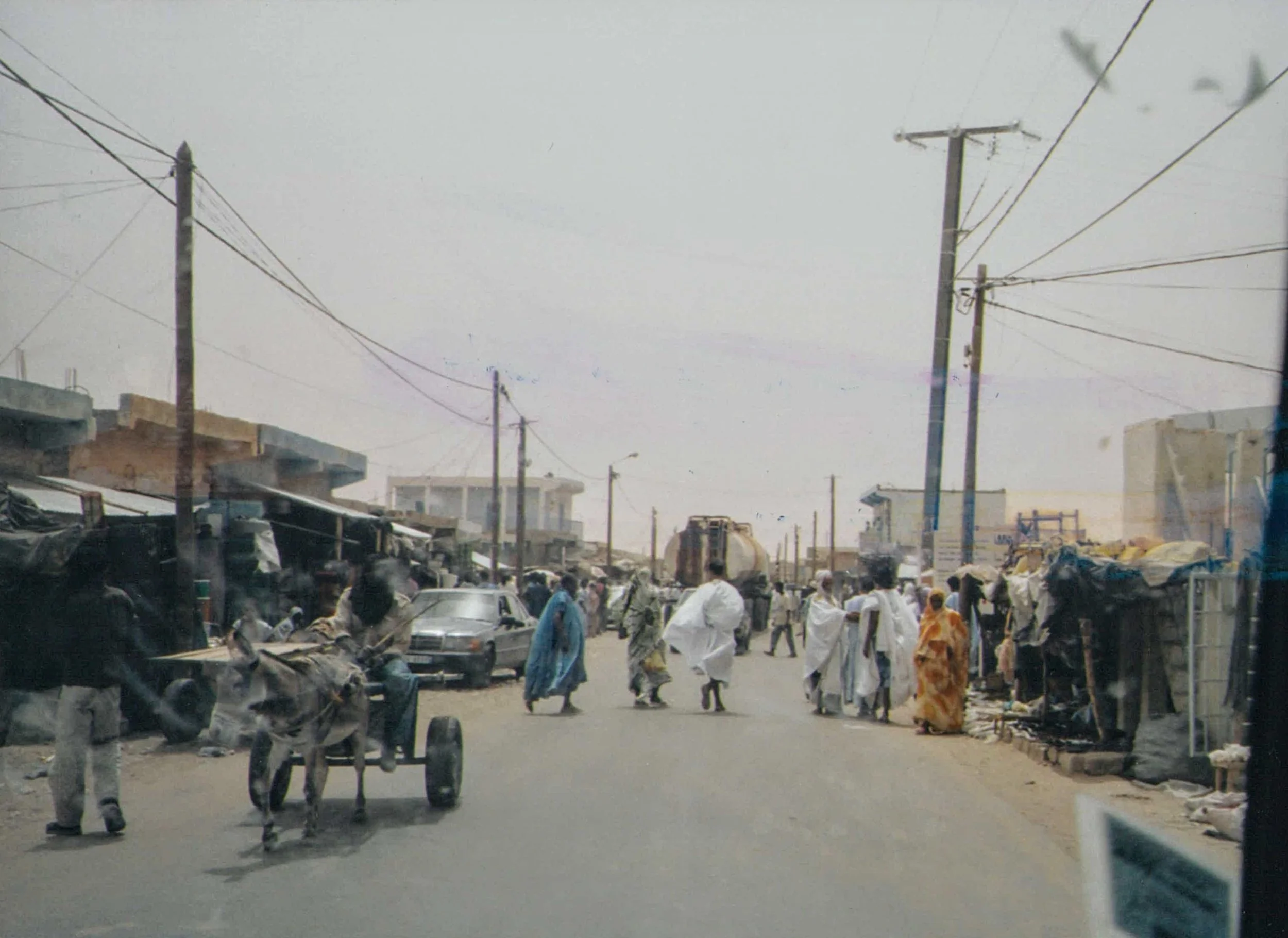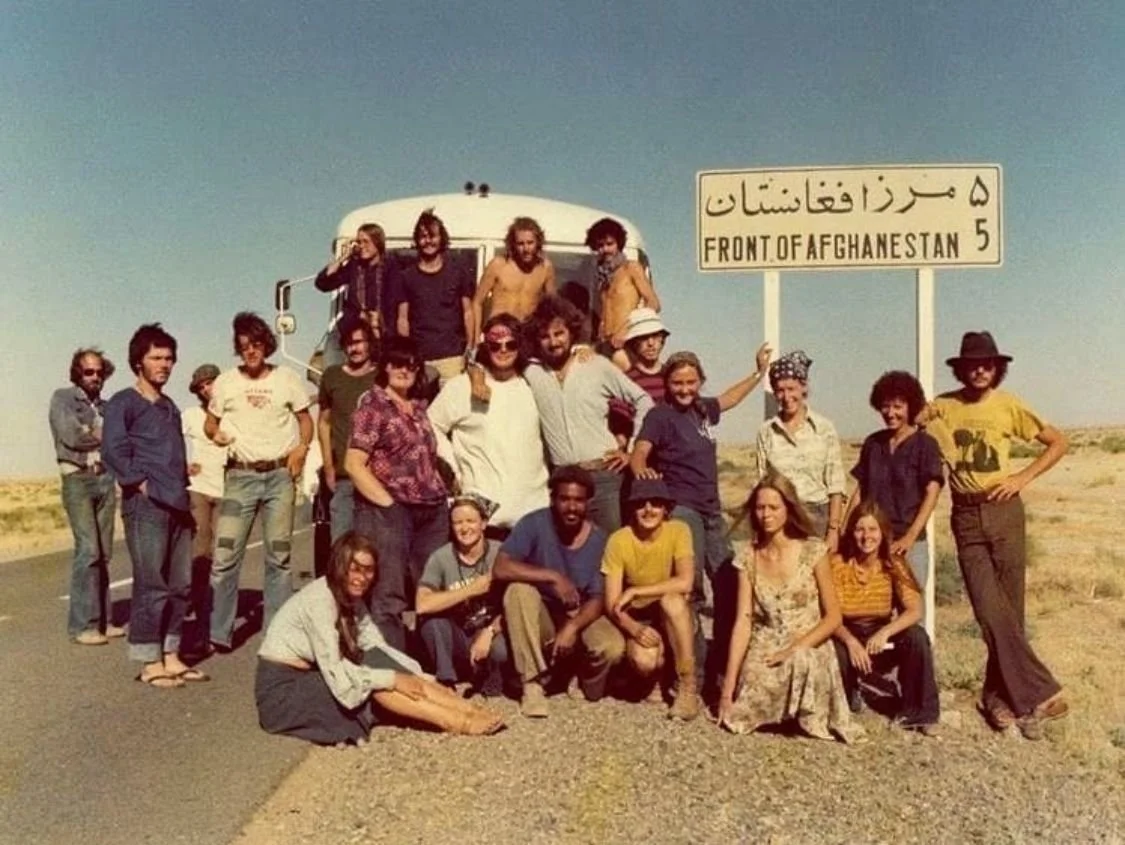Has technology ruined travel?
The Auberge de Jeunesse l'Amitié is an unremarkable hostel in Nouakchott, the capital of Mauritania. One of the least visited countries on earth, this vast desert nation is the conduit between North and West Africa. To its south lies Senegal, while 1,000 kilometres east is Mali.
Walking the streets of Nouakchott it is hard to believe that this is the 21st century. In early 2006, the scenes from Nouakchott could be lifted straight from a black and white film. The former fishing village is an accidental capital, chosen for its geography more than anything else, and it still exudes a small town atmosphere. Most people are dressed in loose fitting shawls, men in white and women in bursts of bright colours. They shuffle along windswept roads in weathered sandals and plastic flip-flops. Nouakchott’s dusty streets are home to crumbling concrete buildings and makeshift dwellings. In the marketplaces, stallholders are sheltered from the blazing sun by large striped umbrellas. Elsewhere, donkeys pull wooden carts as whips crack against their behinds, and the smell of fish moves through the air, carried with the ocean breeze.
Nouakchott, Mauritania (March 2006)
The common area of the Auberge de Jeunesse l'Amitié is shaded by date palms and ragged tarpaulins. Underneath, travellers gather at large wooden tables or laze on unwashed cushions in oversized chairs. They sit and chat about where they have been, where they are going, and the improvised transport options they have used. Others flick through dog-eared travel guides, outdated magazines, and novels in various languages. Spread across on the tables are decks of cards and board games, dice and game pieces left scattered about. When one of the travellers pulls out a laptop I feel a nudge in my side.
‘Can you believe people are now travelling with laptops?’ the unnamed traveller exclaims. I smile and nod in agreement, thinking about how heavy it must be to carry around. It seems ridiculous that anyone would carry a laptop with them given the abundance and affordability of internet cafes. Also, what would you do with a laptop? It is hard enough to fill an hour at an internet cafe, let alone needing to spend that much time on the internet that you would bring your own laptop. We laugh and scoff before returning to our magazines, finishing the half-finished crosswords.
While we are baffled by what we see, the reality is that 21st century technology is sprouting in our comfortable garden of travel. In early 2006 something called Wi-Fi is spreading, though it tends to be limited to office blocks in major cities. It is certainly not available in backpacker hostels in West Africa. Another invention called the iPhone is set to launch soon, following the success of the iPod. Though perhaps the biggest leap in technology for travellers has been the advent of digital cameras. As a self confessed technophobe, I have yet to make the switch to one, though I do have an iPod.
Fast forward to 2025.
I have an eight hour layover in Kuala Lumpur, on route to Uzbekistan. With so much time to kill, I spend some of it writing this article, on, you guessed it - a laptop! In the two decades since my rather analogue backpacking adventure through West Africa, I am now armed with a laptop, digital camera, smartphone and all the various cords and adaptors that accompany them. How times change, how I’ve changed, how travel has changed.
With twenty years of advances in technology, travel has definitely changed, though is it for better or worse? It is a common trope for travellers to muse about the ‘good old days.’ They reminisce of times that were simpler, when life was easier, and the experiences of travel were deeper. Think of tales from Afghanistan in the ‘70’s, stories from Bali before it was ‘ruined,’ and European summers before tourism became so overwhelming that the locals turned on them. Anyone who travelled before the digital age will have a story to tell, or a time to look back upon with rose tinted glasses, I know I do.
On the ‘Hippie Trail’ to Afghanistan in the 1970s
Examples of technology ruining travel are easy to find. Who hasn’t had their view obscured by a probing selfie stick, or their ambience destroyed by someone playing music on their phone? I’m sure we have all rolled our eyes as someone poses for an ‘Insta-moment’ in front of a sweeping view or famous landmark. Capturing and sharing moments has never been easier, yet immersing yourself in these moments has never been more difficult. The desire to capture and post has eroded our ability to #liveinthemoment. In years past we would never know if we blinked at an inopportune moment until our pictures were developed. In any case it never really mattered, because the photo was not an end in itself, the journey was, the experience.
A tourist posing (again) for the perfect shot - Khiva, Uzbekistan
Meanwhile, the shared spaces of travellers - backpackers hostels, restaurants, bars, and even departure lounges - are now siloed worlds where travellers scroll their phones rather than interacting with others. It seems that the days of card games, extending invitations to lone travellers, and impromptu dinner and drinks with new friends are long gone. This disconnection with each other bleeds into a disconnection from locals, all of which dilutes our experiences. With so much information about the world in our pocket, there is seemingly less need and less opportunity to interact with local people, unless it is in the form of a transaction.
Yet we should not despair, all is not lost. In the ways that technology has ruined travel, it has equally improved it, and opened new doors to new experiences.
An art display in Bhukara, Uzbekistan using discarded mobile phones.
The case for technology improving travel has been so gradual that we may have overlooked it. With the ability and ubiquity of smartphones it seems almost redundant to mention digital cameras, yet this technology has erased the risk of damaging, losing, and carrying films. Digital cameras have enhanced the experiences of travellers of all ages and photographic ability. Meanwhile, our smartphones have erased many of the practical difficulties of travelling. Who can honestly say they have never been lost in a big city? I know I have been, when in Cairo, Istanbul, and Fes (actually Fes was designed to confuse invaders so perhaps that doesn’t count). While there is sometimes an enjoyment in wandering aimlessly it can also be frustrating, wasting hours of your day unnecessarily. We now carry a virtual atlas in our pocket, and the days of being lost are over. Our smartphones also offer new ways to connect and discover, with apps like Couchsurfing, MeetUp, and Atlas Obscura. I have been couch surfing for almost 20 years and it has wholly enriched my experiences. Dating apps, for those so inclined, offer yet another avenue to meet people, while translation apps, which are developing rapidly with the rise of AI, can help break down language barriers.
Ultimately, as with any technology, it is how we use these new tools that matters. Do we master their use, or do we succumb, and allow the technology to become our ruler? Are we walking in the footsteps of someone else, or creating our own experiences? Are we travelling the way we want to, or the way we are expected to? Are we imitators or originators? Are we travellers or brands? It is up to each of us to answer and decide how they want to travel, as a master of technology or a slave to it.





